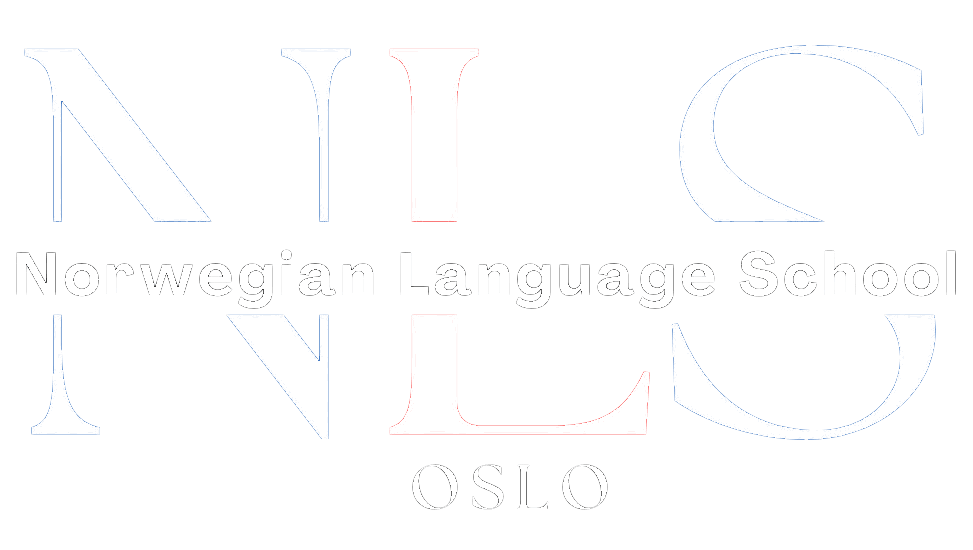

Mastering Norwegian Business Culture and Language: A Key to Success with NLS Norwegian Language School
Although many nordmenn (Norwegians) speak and can communicate in English, building deep and meaningful relationships in Norway requires proficiency in Norwegian. In Norway, much of the essential information, from business documents to everyday communication, is in Norwegian. Therefore, being able to handle the Norwegian language is crucial for success and effective communication in the business environment. NLS Norwegian Language School offers specialized courses in business Norwegian to help professionals excel in this setting.
Table of Contents
ToggleThe Importance of Norwegian Arbeidsetikk (Work Ethic)
Norway is renowned for its strong emphasis on balanse mellom arbeid og fritid (work-life balance), prioritizing familietid (family time) and leisure activities. Nordmenn (Norwegians) highly value their fritid (free time) and balance it alongside their work commitments. Consequently, long working hours or compromising personlig tid (personal time) for work is not typically regarded as necessary or commendable.
Punktlighet (punctuality) and pålitelighet (reliability) are critical in Norwegian forretningskultur (business culture). Being on time for møter (meetings) and appointments is expected, and tardiness without a legitimate reason is considered disrespectful. Nordmenn (Norwegians) also place a high value on pålitelighet (reliability), ensuring promises are kept and tidsfrister (deadlines) are met.
Norske selskaper (Norwegian companies) typically feature a flat organisasjonsstruktur (organizational structure), emphasizing samarbeid (collaboration) and likhet (equality). Decision-making processes are generally desentraliserte (decentralized), incorporating input from all levels of the organisasjon (organization). This egalitarian approach fosters a sense of eierskap (ownership) and ansvar (responsibility) among ansatte (employees), leading to increased motivasjon (motivation) and produktivitet (productivity).
To fully grasp these aspects of Norwegian business culture, enrolling in a specialized course in business Norwegian at NLS Norwegian Language School can be incredibly beneficial.
Example Sentences:
- Nordmenn setter stor pris på punktlighet (Norwegians highly value punctuality).
- Det er viktig å være pålitelig i norsk forretningskultur (It is important to be reliable in Norwegian business culture).
- En flat organisasjonsstruktur fremmer samarbeid og likhet (A flat organizational structure promotes collaboration and equality).
Building Relasjoner (Relationships) in Norwegian Forretningskultur (Business Culture)
Cultivating tillit (trust) and rapport is fundamental in Norwegian forretningskultur (business culture). Nordmenn (Norwegians) value autentisitet (authenticity) and ærlighet (honesty) in their interactions, so being genuine and transparent when forming relasjoner (relationships) is crucial. Establishing tillit (trust) in Norway requires time and tålmodighet (patience).
Nettverksarrangementer (networking events) and sosiale sammenkomster (social gatherings) are prevalent in Norwegian forretningskultur (business culture). These events offer opportunities to meet and connect with potential forretningspartnere (business partners) or kunder (clients). However, it’s important to note that nordmenn (Norwegians) tend to avoid small talk or overfladiske samtaler (superficial conversations). Instead, they prefer engaging in meningsfulle diskusjoner (meaningful discussions) to get to know others on a deeper level.
Personlige spørsmål (personal questions) are generally avoided in Norwegian forretningskultur (business culture). Nordmenn (Norwegians) value their personvern (privacy) and may find it intrusive if someone asks personal questions too soon. It’s best to stick to profesjonelle emner (professional topics) and gradually build a relationship based on gjensidig tillit (mutual trust) and respekt (respect).
To navigate these nuances effectively, the courses in business Norwegian at NLS Norwegian Language School provide valuable insights and practical skills.
Example Sentences:
- Det tar tid å bygge tillit i Norge (It takes time to build trust in Norway).
- Autentisitet og ærlighet er viktig i norske relasjoner (Authenticity and honesty are important in Norwegian relationships).
- Nordmenn foretrekker meningsfulle diskusjoner fremfor overfladiske samtaler (Norwegians prefer meaningful discussions over superficial conversations).
Communication Styles in Norwegian Forretningskultur (Business Culture)
Direct and honest kommunikasjon (communication) is highly prized in Norwegian forretningskultur (business culture). Nordmenn (Norwegians) appreciate straightforwardness and expect others to be clear and concise in their kommunikasjon (communication). They value effektivitet (efficiency) and may find excessive small talk or indirectness frustrating.
While directness is important, nordmenn (Norwegians) also maintain a non-confrontational approach to kommunikasjon (communication). They prefer to avoid konflikt (conflict) and seek common ground through kompromiss (compromise). Being respectful and considerate when expressing differing opinions or challenging ideas is crucial.
Active listening is vital in Norwegian forretningskultur (business culture). Nordmenn (Norwegians) appreciate when others take the time to listen attentively and show genuine interest in what they have to say. Interrupting or dominating conversations is often seen as rude or disrespectful.
The business Norwegian courses at NLS Norwegian Language School can equip you with the communication skills needed to navigate these expectations effectively.
Example Sentences:
- Direkte og ærlig kommunikasjon er høyt verdsatt i Norge (Direct and honest communication is highly valued in Norway).
- Det er viktig å unngå konflikt og finne kompromiss (It is important to avoid conflict and find compromises).
- Aktiv lytting er essensielt i norsk forretningskultur (Active listening is essential in Norwegian business culture).
Navigating Norwegian Business Etiquette and Protocol
In Norwegian forretningskultur (business culture), dress codes and appearances are generally conservative and formal. Business attire is expected for most professional settings, with men typically wearing suits and ties, and women opting for formal dresses or suits. It is always better to be slightly overdressed than underdressed in Norway.
Gift-giving customs in Norwegian forretningskultur (business culture) are not as prevalent as in some other cultures. However, if you are invited to someone’s home or have developed a close relationship with a business partner, a small gift such as flowers or chocolates is appreciated. Extravagant or expensive gifts might be considered inappropriate.
Business card etiquette in Norway aligns with that of other Western countries. It is customary to exchange business cards at the beginning of a meeting or introduction. When receiving a business card, take a moment to look at it and show interest. It is also polite to offer your own business card in return.
To master these aspects of etiquette, consider the business Norwegian courses at NLS Norwegian Language School, which cover these cultural nuances in detail.
Example Sentences:
- Forretningsantrekk i Norge er generelt konservativt og formelt (Business attire in Norway is generally conservative and formal).
- Det er vanlig å utveksle visittkort i begynnelsen av et møte (It is customary to exchange business cards at the beginning of a meeting).
- Gavegiving er ikke like vanlig i Norge som i andre kulturer (Gift-giving is not as common in Norway as in other cultures).
The Importance of Language in Norwegian Forretningskultur (Business Culture)
English is widely spoken within Norwegian forretningskultur (business culture), especially among professionals and within international companies. However, learning some Norwegian can greatly enhance your business interactions and show respect for the local culture.
In Norway, most essential information, including business documents and daily communication, is in Norwegian. Being proficient in the language allows for better understanding and smoother interactions in all aspects of professional life.
While many nordmenn (Norwegians) are fluent in English, incorporating some Norwegian phrases and greetings can help break the ice and build rapport. It demonstrates that you’ve made an effort to learn their language and understand their culture. Additionally, knowing some Norwegian can be advantageous when dealing with clients or partners who may not be as fluent in English.
To facilitate this learning, NLS Norwegian Language School offers comprehensive courses in business Norwegian, providing the tools and knowledge necessary to excel in the Norwegian business environment.
Example Sentences:
- Å lære norsk kan forbedre forretningsinteraksjoner og vise respekt for lokal kultur (Learning Norwegian can improve business interactions and show respect for local culture).
- Mange nordmenn snakker flytende engelsk, men noen norske setninger kan bygge bro (Many Norwegians speak fluent English, but some Norwegian phrases can build a bridge).
- Det finnes mange ressurser for å lære norsk for forretningsfolk (There are many resources for learning Norwegian for business professionals).
Learning Norwegian: Tips and Resources for Business Professionals
For business professionals aiming to learn Norwegian, there are several options available. Language courses and programs specifically designed for business purposes offer a structured approach to mastering the language.
These courses often focus on business vocabulary, communication skills, and cultural nuances pertinent to the Norwegian business environment. They may also include role-playing exercises and case studies to simulate real-life business scenarios.
The business Norwegian courses at NLS Norwegian Language School provide a comprehensive curriculum tailored to meet these needs, ensuring that professionals are well-equipped to handle the linguistic and cultural demands of the Norwegian business world.
Example Sentences:
- Språkkurs for forretningsfolk fokuserer ofte på forretningsvokabular og kommunikasjonsferdigheter (Language courses for business professionals often focus on business vocabulary and communication skills).
- Rollelek og casestudier kan simulere virkelige forretningsscenarier (Role-playing and case studies can simulate real business scenarios).
- Strukturerte språkkurs kan gi en solid grunnlag i norsk (Structured language courses can provide a solid foundation in Norwegian).
Negotiating in Norwegian Forretningskultur (Business Culture)
Negotiating in Norwegian forretningskultur (business culture) requires careful preparation and research. Nordmenn (Norwegians) value thoroughness and expect others to come to the negotiation table well-prepared. This includes understanding the market, knowing your own strengths and weaknesses, and having a clear understanding of your goals and objectives.
Nordmenn (Norwegians) have a non-confrontational negotiation style. They prefer to find common ground through kompromiss (compromise) rather than engaging in aggressive or confrontational tactics. It is important to approach negotiations with a cooperative mindset and be open to finding mutually beneficial solutions.
Finding common ground is crucial in Norwegian forretningskultur (business culture). Nordmenn (Norwegians) value consensus and collaboration, so it is important to focus on areas of agreement and work towards finding solutions that benefit both parties. This requires active listening, empathy, and a willingness to consider different perspectives.
The negotiation strategies and cultural insights taught in the business Norwegian courses at NLS Norwegian Language School can greatly enhance your ability to negotiate effectively in Norway.
Example Sentences:
- Forhandlinger i Norge krever grundig forberedelse og forskning (Negotiations in Norway require thorough preparation and research).
- Nordmenn foretrekker å finne felles grunn gjennom kompromiss (Norwegians prefer to find common ground through compromise).
- Det er viktig å nærme seg forhandlinger med en samarbeidsinnstilling (It is important to approach negotiations with a cooperative mindset).
Overcoming Cultural Barriers in Norwegian Business
When doing business in Norway, it is important to understand and respect cultural differences and norms. Avoiding stereotypes and assumptions is key to building successful relationships with Norwegian business partners.
Norway is known for its egalitarian society, where everyone is considered equal regardless of their position or background. It is important to treat everyone with respect and avoid hierarchical behavior or excessive displays of power.
Cultural sensitivity is crucial in Norwegian forretningskultur (business culture). Being aware of cultural norms, such as personal space, punctuality, and direct communication, can help avoid misunderstandings and foster positive relationships. Taking the time to learn about Norwegian customs and traditions shows respect for the local culture.
The courses at NLS Norwegian Language School cover these cultural nuances extensively, preparing you to navigate the business landscape with cultural competence.
Example Sentences:
- Det er viktig å forstå og respektere kulturelle forskjeller i Norge (It is important to understand and respect cultural differences in Norway).
- Norge er kjent for sitt egalitære samfunn hvor alle anses som likeverdige (Norway is known for its egalitarian society where everyone is considered equal).
- Kulturell sensitivitet er avgjørende i norsk forretningskultur (Cultural sensitivity is crucial in Norwegian business culture).
Opportunities for International Business in Norway
Norway offers numerous opportunities for international businesses. With a strong economy and a focus on sustainability and innovation, Norway is an attractive market for companies in industries such as oil and gas, renewable energy, shipping, and technology.
Understanding Norwegian forretningskultur (business culture) is essential for success in the Norwegian market. Building relationships based on trust and respect, learning some Norwegian, and adapting to local customs and etiquette can greatly enhance your chances of success.
Example Sentences:
- Norge tilbyr mange muligheter for internasjonale bedrifter (Norway offers many opportunities for international businesses).
- Forståelse av norsk forretningskultur er essensielt for suksess i det norske markedet (Understanding Norwegian business culture is essential for success in the Norwegian market).
- Å bygge relasjoner basert på tillit og respekt kan øke sjansene for suksess (Building relationships based on trust and respect can increase chances of success).
Conclusion
In conclusion, mastering Norwegian forretningskultur (business culture) and language is essential for anyone looking to succeed in Norway’s business landscape. By understanding the work ethic, building relationships, communicating effectively, and respecting cultural norms, business professionals can thrive in the Norwegian business environment. Learning Norwegian can significantly enhance business interactions and show respect for the local culture. With its strong economy and focus on sustainability and innovation, Norway offers numerous opportunities for international businesses willing to invest the time and effort to understand its business culture.
Vocabulary List
- Kjent – Known
- Høy levestandard – High standard of living
- Økonomi – Economy
- Bærekraft – Sustainability
- Innovasjon – Innovation
- Olje og gass – Oil and gas
- Fornybar energi – Renewable energy
- Teknologi – Technology
- Forretningskultur – Business culture
- Arbeidsetikk – Work ethos
- Balanse mellom arbeid og fritid – Work-life balance
- Familietid – Family time
- Fritid – Free time
- Personlig tid – Personal time
- Punktlighet – Punctuality
- Pålitelighet – Reliability
- Møter – Meetings
- Tidsfrister – Deadlines
- Norske selskaper – Norwegian companies
- Organisasjonsstruktur – Organizational structure
- Samarbeid – Collaboration
- Likhet – Equality
- Desentraliserte – Decentralized
- Organisasjon – Organization
- Eierskap – Ownership
- Ansvar – Responsibility
- Ansatte – Employees
- Motivasjon – Motivation
- Produktivitet – Productivity
- Relasjoner – Relationships
- Tillit – Trust
- Autentisitet – Authenticity
- Ærlighet – Honesty
- Tålmodighet – Patience
- Nettverksarrangementer – Networking events
- Sosiale sammenkomster – Social gatherings
- Forretningspartnere – Business partners
- Kunder – Clients
- Overfladiske samtaler – Superficial conversations
- Meningsfulle diskusjoner – Meaningful discussions
- Personlige spørsmål – Personal questions
- Personvern – Privacy
- Profesjonelle emner – Professional topics
- Gjensidig tillit – Mutual trust
- Respekt – Respect
- Kommunikasjon – Communication
- Effektivitet – Efficiency
- Konflikt – Conflict
- Kompromiss – Compromise
- Forberedelse – Preparation
- Forskning – Research
- Egalitært samfunn – Egalitarian society
- Kulturell sensitivitet – Cultural sensitivity
- Internasjonale bedrifter – International businesses

Norwegian A1-A2
Course Overview The Norwegian A1-A2 course is an online program focused on teaching essential Norwegian grammar and vocabulary. It includes a variety of materials and topics, with opportunities to interact with a Norwegian teacher entirely online. Curriculum Highlights The course covers key areas such as grammar and vocabulary and topics such as family, daily life, education, work, traditions, and leisure activities. Who Should Enroll? This course is perfect for beginners or those at the A1 or A2 levels who want to improve their Norwegian skills. What You Get Access to the full Norwegian A1-A2 course. A monthly 1-hour online conversation with a teacher. Many written and oral assignments. Comprehensive information on Norwegian grammar, Norwegian vocabulary and how to use them, important sentence structures, etc. Tips on additional resources to further enhance your Norwegian learning.
0 students enrolled
Last updated Dec 10th, 2024
If you want to learn Norwegian, you can register for classes here. We look forward to hearing from you and helping you become fluent in Norwegian.





